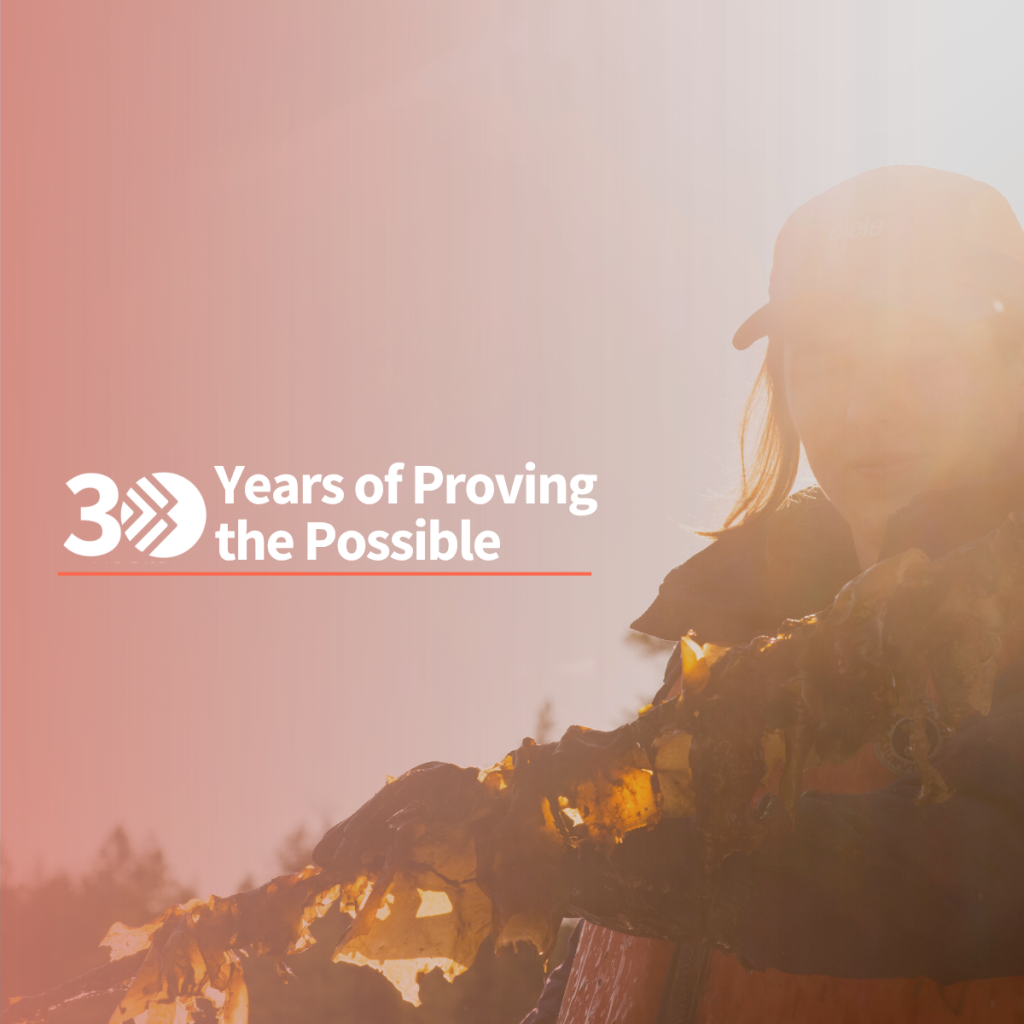Thirty years ago, Ecotrust Canada set out with a bold idea: the environment and the economy don’t have to be in opposition—instead, they can support each other. Back then, it was a radical notion, encapsulated best in our mission to build a “conservation economy,” a phrase that we proudly note is in broad use today by governments, communities, and civil society.
Our mission took root in our early work with Indigenous partners, including the Haisla Nation, in creating the Kitlope Heritage Conservancy—the world’s largest intact coastal temperate rainforest.
It shaped our approach to “information democracy” when we used GIS technology to support Indigenous and rural communities in mapping their territories to manage their lands and waters.
It informed the creation of the Coastal Loan Fund, which helped rural entrepreneurs launch sustainable, equitable, and inclusive businesses. The fund lasted over 10 years and inspired a cascade of new conservation finance initiatives, which are increasingly being deployed around the world.
We’ve since pivoted from a sole focus on the “conservation economy” to a mission that considers conservation as one slice of a much larger pie. Our work on food, housing, energy, climate, and fisheries embraces the greater complexity of how human well-being and ecosystem health are deeply intertwined. In recognition of this interdependence, our mission now calls us to the more ambitious task of building an economy that provides for life.
That said, what has kept us going over the decades isn’t just a vision and a compelling mission—it’s a commitment to showing up, staying connected, and evolving alongside the rural, remote, and Indigenous communities we serve. We’ve always believed that real change happens from the ground up, and our job is to support that change with integrity, humility, innovation, and support for Indigenous sovereignty and leadership.
Our work today reflects the same core values we started with. Let me share just a few ways this has come to life in recent years:
- In Community Fisheries, after three decades of advocacy and partnership, we’re now in a position to help reshape federal policy regarding how fish harvesting is governed on the West Coast of Canada—shifting the benefits of fisheries back into the hands of working harvesters, coastal communities, and First Nations.
- In Climate Resilience, we’re building on years of work—from the creation of community wealth through carbon offsets with the Cheakamus Community Forest in Whistler BC, to our partnerships with Wahkohtowin Development, a First Nation social enterprise in northern Ontario—to create place-based stewardship models that blend Indigenous law, ecological science, and climate action.
- In Food Systems, years of relationship-building through the North Coast Innovation Lab and fisheries work have led to meaningful partnerships. We’ve worked with Metlakatla First Nation to establish a regenerative ocean farm that grows scallops and seaweed and collaborated regionally to develop a local food hub in Prince Rupert. This work builds on our 28 years of living and working in the Skeena Region.
- In Community Energy, we celebrated a major policy win in 2024 when the Province of BC committed to covering the full cost of heat pump installations for lower-income households. That victory was grounded in years of hands-on work with communities and advocacy with aligned organizations and First Nations across coastal BC.
- In Indigenous Homelands, our Routes to Roots program focuses on regional economic development rooted in land and tradition, but it evolved from a long line of community partnerships, including our Tree-to-Home project, which was dedicated to linking resources and capacity to meeting local needs. More proof that long-term thinking and deep community ties can generate lasting, systemic change.
As we celebrate 30 years of this work, we know it’s not just our story—it’s a testament to what’s possible when communities lead, and when charities like ours have the courage and resources to follow, to serve, and to build. Together, we’ve proven that a different kind of economy is possible and is already taking root.
By supporting Ecotrust Canada, you are investing in a future where people and nature are inseparable, and thrive together, where Indigenous sovereignty and rural livelihoods are strengthened, and where systems change is seeded from the ground up.
Now, we invite you to help it grow. Donate today.
— Chuck Rumsey, President and CEO, Ecotrust Canada
[Published July 30, 2025]


